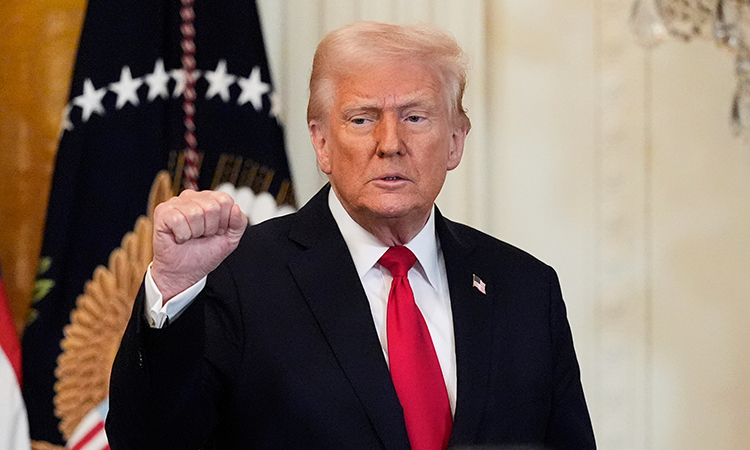AUSTIN, Texas (AP) — A federal judge on Wednesday found the extreme heat in Texas prisons is “plainly unconstitutional,” but declined to order the state to immediately start installing air conditioning, which could cost billions.
The judge affirmed claims brought by advocates of people incarcerated in the state, where summer heat routinely soars above 100 degrees Fahrenheit (38 degrees Celsius). But they will have to continue pressing their lawsuit later in a trial.
The lawsuit was initially filed in 2023 by Bernie Tiede, the former mortician serving a life sentence whose murder case inspired the movie “Bernie.” Several prisoners’ rights groups then asked to join his legal fight and expand it.
The lawsuit argues the heat in the state facilities amounts to cruel and unusual punishment, and seeks to force the state to install air conditioning.
Jeff Edwards, lead attorney for prisoners and advocates, called the judge’s order a victory, even if it didn’t require an immediate fix.
“We proved our case,” Edwards said. “The court made it very clear what the state is doing is unconstitutional and endangering the lives of those they are supposed to be protecting … This is step one in changing the Texas prison system.”
Edwards said advocates will push for relief for prisoners as quickly as possible. “I’m regretful we can’t protect them with temporary relief this summer, but we will move as fast as we can,” he said.
Texas has more than than 130,000 people serving time in prisons, more than any state in the U.S. Only about a third of roughly 100 prison units are fully air conditioned and the rest have either partial or no electrical cooling.
“This case concerns the plainly unconstitutional treatment of some of the most vulnerable, marginalized members of our society,” U.S. District Judge Robert Pitman wrote in his ruling on a a temporary injunction request. “The Court is of the view that excessive heat is likely serving as a form of unconstitutional punishment.”
But the judge said that ordering the state to spend “hundreds of millions, if not billions, of dollars to install permanent air conditioning in every (prison),” could not be accomplished before it expired in 90 days.
It would take months to install temporary air conditioning, and could even delay a permanent solution, the judge wrote.
Pitman said he expects the case will proceed to trial, where advocates for prisoners can continue to argue their case.
He also issued a warning to the state that they will likely win at trial, and that the state could face an order to install air conditioning.
The judge also noted that the state Legislature, which is in session through May and writes the two-year state budget, is also considering bills that would require air conditioning to be installed in prisons.
But the Republican-majority Legislature has been hearing complaints about extreme heat in prisons for years and has not addressed the issue. In 2018, the state was ordered to install air conditioning at a unit for older prisoners and those that are medically vulnerable.
Officials at the Texas Department of Criminal Justice did not immediately respond to emails seeking comment.
Texas is not alone in facing lawsuits over dangerously hot prisons. Cases also have been filed in Louisiana and New Mexico. One filed in July in Georgia alleged a man died in July 2023 after he was left in an outdoor cell for hours without water, shade or ice.
A November 2022 study by researchers at Brown, Boston and Harvard universities found that 13% — or 271 — of the deaths in Texas prisons without universal AC between 2001 and 2019 may be attributed to extreme heat. Prisoner advocates say those numbers are only likely to increase as the state faces more extreme weather and heat due to climate change.
Last year in a hearing, people who were formerly incarcerated testified about their experiences in hot prison buildings where they said temperatures reach above 120 degrees Fahrenheit (48.9 Celsius).
They testified some inmates would splash toilet water on themselves to cool off, fake suicide attempts to be moved to cooler medical areas, or even deliberately set fires so that guards would be forced to hose down cells.
“It’s sad it takes a federal court to come in and change things,” Edwards said Wednesday. “This is not a Spanish galley in the 1600s, this is 2025.”
Texas Department of Criminal Justice Director Bryan Collier has acknowledged that heat was a factor in three deaths from multiple causes in 2023, and that prison staff and inmates sometimes fall ill from high temperatures.
But the state disputed the hundreds of deaths in recent years alleged by the prisoner advocates, and argues Texas has implemented effective heat mitigation measures, such as providing fans, towels and access to cooler “respite” areas.
Collier also insisted he would like to have air conditioning installed across the prison system, but that state lawmakers have never agreed to spend enough money to do that.
 ANGELINA COUNTY – According to our news partner KETK, an East Texas man has been charged with murder in connection to a missing persons case. Officials said he admitted to killing one of the men by striking the victim in the head and then strangling him.
ANGELINA COUNTY – According to our news partner KETK, an East Texas man has been charged with murder in connection to a missing persons case. Officials said he admitted to killing one of the men by striking the victim in the head and then strangling him.







